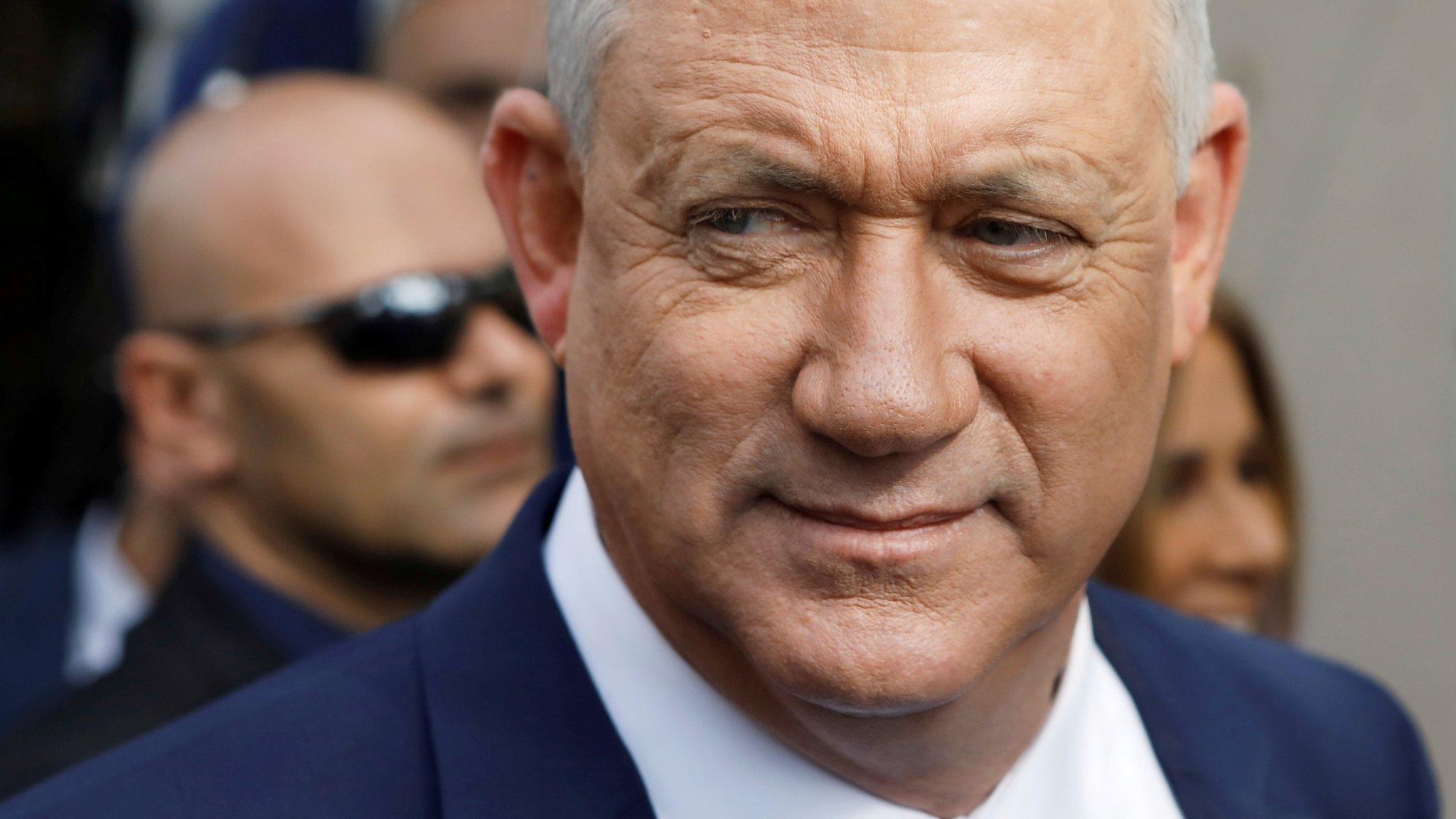Israeli elections: Arab parties back Gantz to oust Netanyahu
- Published
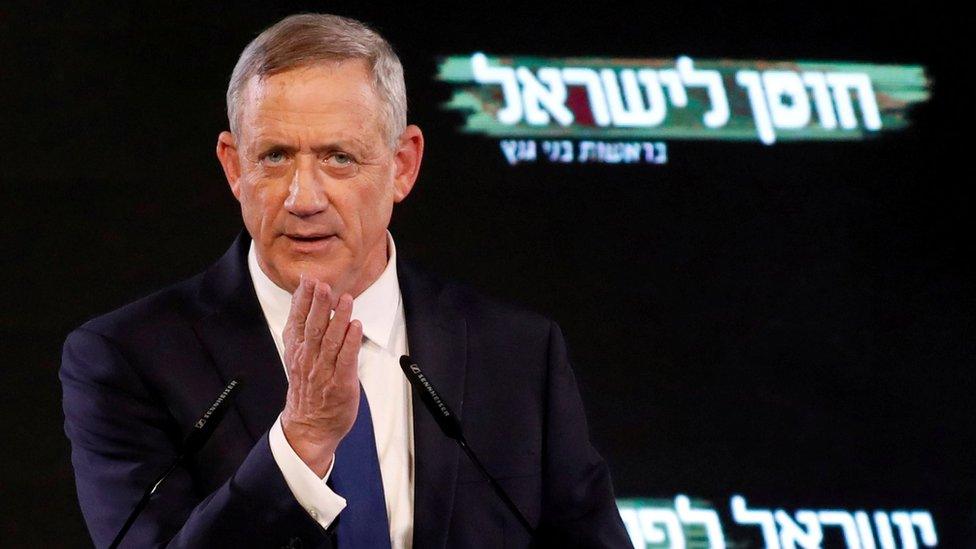
Benny Gantz, a former army chief, is incumbent Prime Minister Benjamin Netanyahu's main rival
Israeli-Arab lawmakers have recommended that the former army chief Benny Gantz should become prime minister.
Last week's election put the incumbent leader Benjamin Netanyahu neck and neck with Mr Gantz, and the two are now vying to build a governing coalition.
The Joint List, the bloc of Arab parties that came in third, says it wants to oust Mr Netanyahu from power.
This is the first time since 1992 that an Arab political group has issued an endorsement for prime minister.
This was Israel's second general election of the year. After the first, in April, coalition talks fell apart and a snap poll was called.
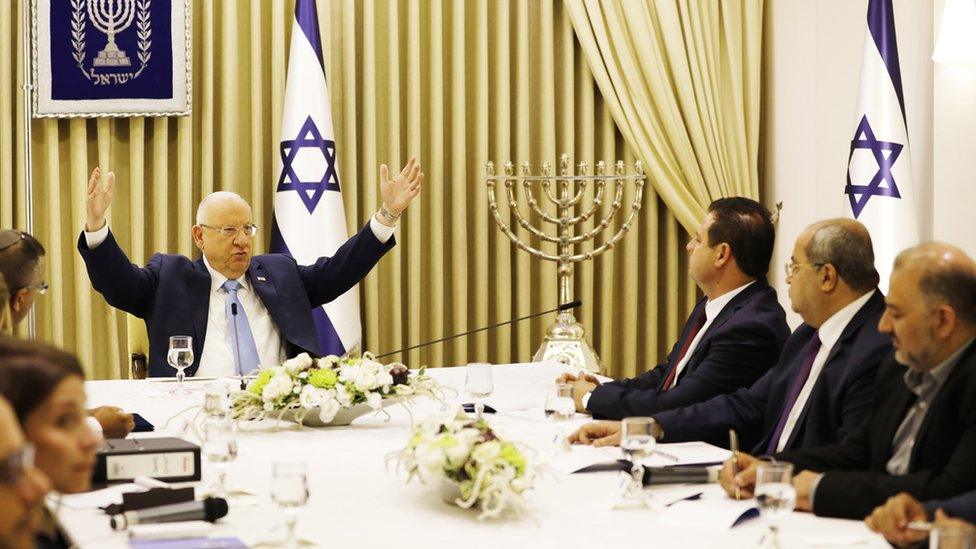
The Joint List alliance gave their recommendation to Israeli President Reuven Rivlin
Faced with yet another deadlock, Israel's President Reuven Rivlin has recommended the new government includes both Mr Gantz's Blue and White Alliance, which won 33 seats, and Mr Netanyahu's Likud party, which won 31.
Mr Rivlin has said he will do everything he can to avoid a third general election in Israel this year.
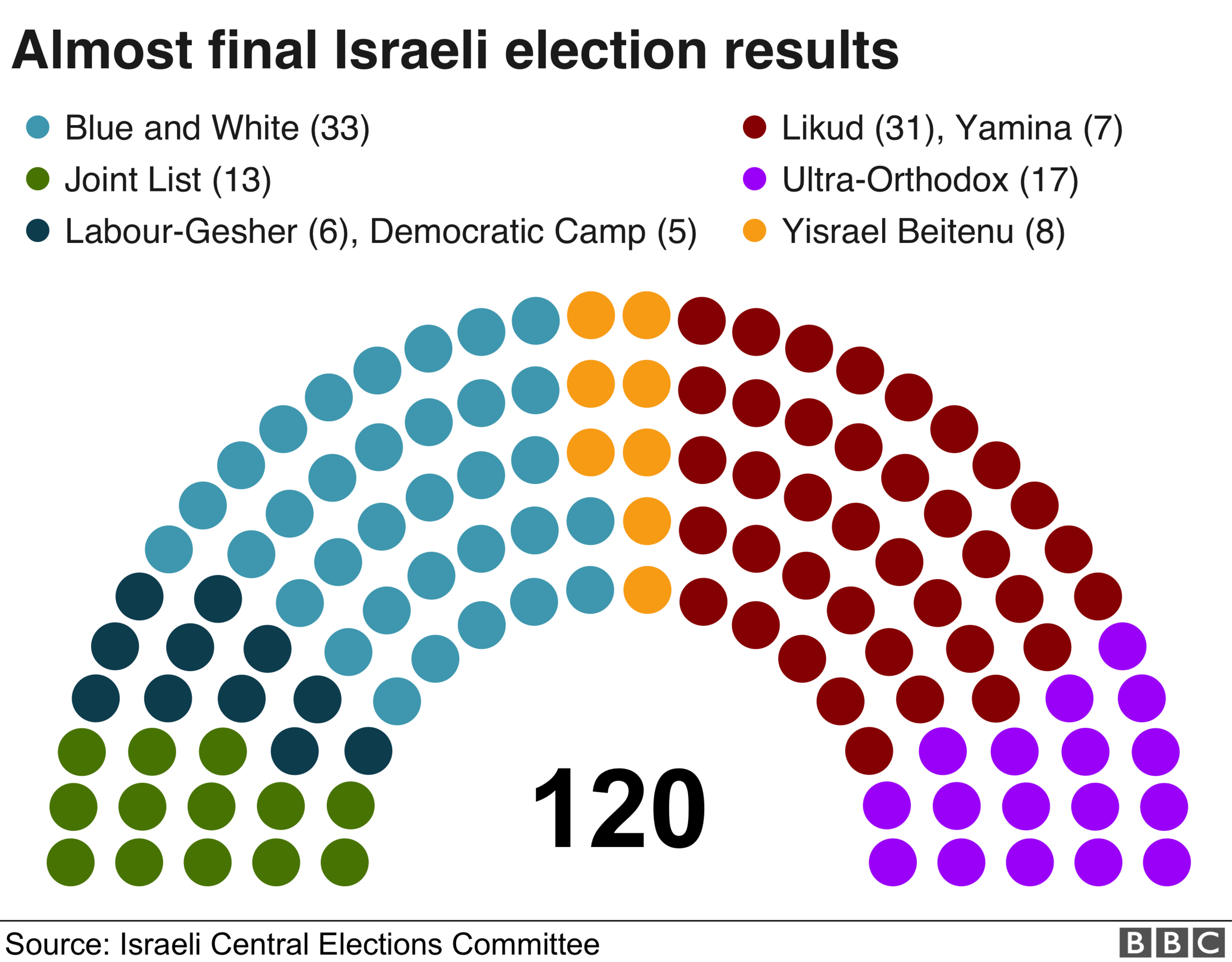

Ayman Odeh, leader of the Joint List, told President Rivlin that his alliance's priority was to prevent Mr Netanyahu from serving another term.
The Joint List won 13 seats in the election. If Mr Gantz had the endorsement of all 13 seats, he would still fall short of the 61 seats needed for a majority in the 120-seat legislature.


This is a significant exercise of political power by Israel's Arab citizens.
President Rivlin is consulting party leaders about whom he should ask to lead the country after last week's inconclusive election results. The Arab parties put in a strong showing, becoming the third largest force in the legislature.
Their support will not give Benny Gantz and his Blue and White alliance a majority, but it will give him a boost in negotiations about who gets the first chance to form a government.
The leader of the Arab grouping, Ayman Odeh, said it wasn't endorsing Mr Gantz and his polices: but was moving to try and block Benjamin Netanyahu from securing another term, and to send a clear message that Israel's future must include the full and equal participation of its Palestinian citizens.

More on the Israeli elections:
Benjamin Netanyahu's options are "shrinking" after Israel election, says biographer Anshel Pfeffer
- Published21 September 2019
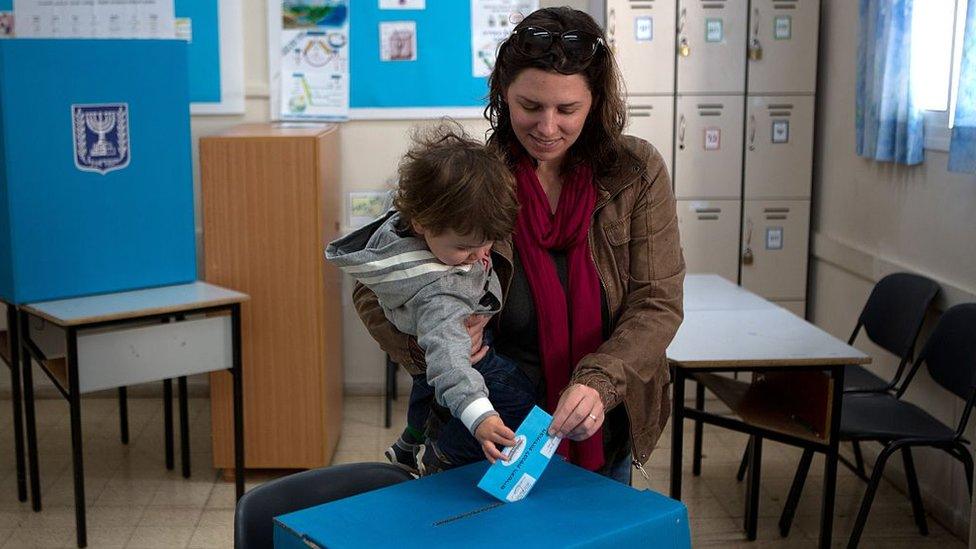
- Published21 November 2024
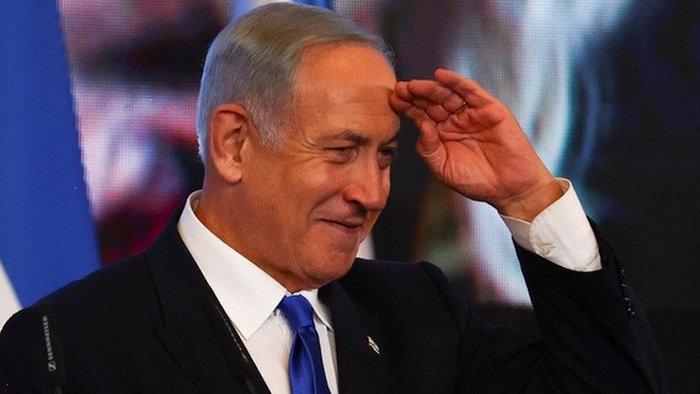
- Published14 May 2020
